Pre-eclampsia is a potentially serious pregnancy complication characterized by high blood pressure and signs of damage to organs such as the liver or kidneys. It usually develops after the 20th week of pregnancy and affects about 5-8% of pregnancies worldwide. While the exact cause remains unclear, various nutritional factors may play a critical role in the prevention and management of this condition. In this blog, we’ll explore how nutrients influence pre-eclampsia and what pregnant individuals can do to support their health.
The Role of Calcium
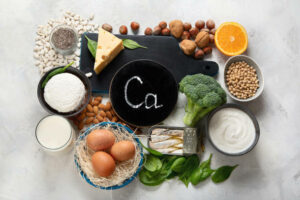
Calcium is one of the most studied nutrients in relation to pre-eclampsia. Low calcium intake during pregnancy has been linked to an increased risk of developing this condition. Calcium supplementation may help lower the risk by reducing blood pressure levels.
Sources: Dairy products, leafy greens, tofu, ragi, and almonds (if not allergic).
Vitamin D Deficiency and Pre-Eclampsia Risk
Research indicates that vitamin D deficiency may be associated with an increased risk of pre-eclampsia. Vitamin D plays a key role in immune regulation, inflammation reduction, and vascular health. Low levels can negatively impact endothelial function, which is critical for maintaining healthy blood pressure.
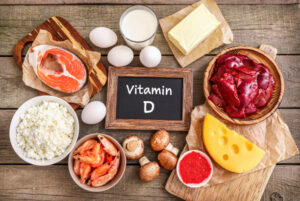
Sources: Spend a few minutes each day in the sun and include vitamin D-rich foods such as fatty fish, egg yolks, and fortified cereals. In cases of deficiency, vitamin D supplementation is advisable.
Antioxidants for Combating Oxidative Stress
Oxidative stress and inflammation are common features of pre-eclampsia. Antioxidant vitamins such as vitamin C, vitamin E, and compounds like selenium help neutralize free radicals and may reduce oxidative damage to the blood vessels.
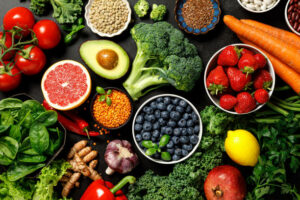
Sources: Include citrus fruits, bell peppers, berries, nuts, seeds, and green leafy vegetables for a boost in antioxidants.
The Importance of Magnesium
Magnesium is involved in numerous physiological functions, including muscle and nerve function, blood sugar regulation, and blood pressure control. Studies have found that adequate magnesium intake during pregnancy may help reduce the risk of pre-eclampsia and lower the need for antihypertensive medications.
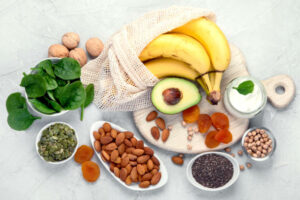
Sources: Legumes, nuts, seeds, whole grains, and green leafy vegetables are great sources of magnesium.
Omega-3 Fatty Acids for Heart Health
Omega-3 fatty acids are known for their anti-inflammatory and vasodilatory properties, which can benefit heart health and reduce the risk of hypertensive disorders in pregnancy. There is some evidence that omega-3 intake from fish or supplements may lower the risk of pre-eclampsia, particularly in women with low baseline levels.
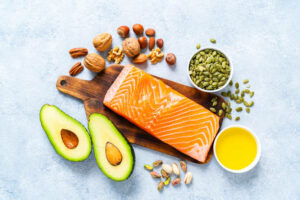
Sources: Consume fatty fish such as salmon or plant-based sources like walnuts, chia seeds, and flaxseeds.
Folate and B Vitamins
Folate (vitamin B9) and other B vitamins are essential for cell division and blood vessel health. Adequate intake may help mitigate risks related to elevated homocysteine levels, which have been associated with pre-eclampsia.
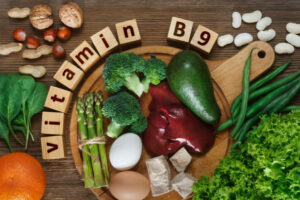
Sources: Beans, lentils, dark green leafy vegetables, and fortified grains are rich in folate.
Zinc for Immune and Placental Health
Zinc plays a role in immune function and the development of the placenta. Some studies suggest that zinc deficiency may contribute to complications like pre-eclampsia.
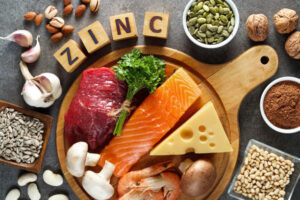
Sources: Include nuts, seeds, whole grains, and legumes.
Sodium and Potassium Balance
While excessive sodium intake can contribute to high blood pressure, maintaining a healthy balance with adequate potassium intake is crucial for vascular health. Potassium helps reduce the effects of sodium and relaxes blood vessel walls.

Manage Sodium Intake: Limit processed foods and opt for fresh, potassium-rich foods like bananas, oranges, avocados, and potatoes.
Conclusion
Nutritional care is a vital component of pregnancy health, particularly when it comes to preventing and managing conditions like pre-eclampsia. Through mindful intake of calcium, vitamin D, antioxidants, omega-3s, magnesium, and other nutrients, it is possible to reduce risks and support maternal and fetal health. Nutrition, combined with medical care and monitoring, can offer a protective strategy against complications during this critical time.


